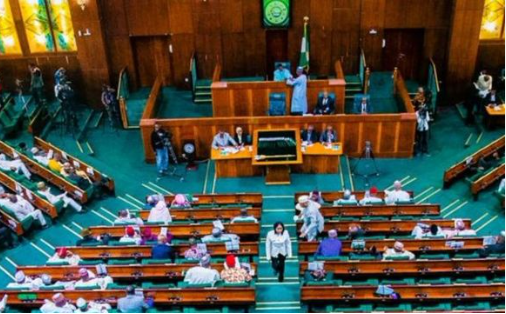The House of Representatives yesterday condemned the calls for an interim government.
They warned the aggrieved politicians behind the clamour to desist from heating up the polity.
According to the House, Nigerians should only wait for the outcome of the electoral litigation, stressing that the court will ventilate political grievances.
The House asked security agencies to be on the alert to forestall the possible breakdown of law and order.
In a resolution during plenary presided over by Deputy Speaker Ahmed Idris Wase, the House said interim government was unknown to the constitution and asked security agents to be on the alert to prevent any breakdown of law and order in the country.
The House resolution followed a motion of urgent public importance by Unyime Idem on the recent revelation by the Department or State Services that some people were plotting an interim government and working to abort the inauguration of the new government on May 29.
Idem reminded the lawmakers that the Part 1, Section 132 of the 1999 Constitution allows for a change of leadership through the ballots and a four year tenure of office for the President.
He said the idea of an interim government is undemocratic, unconstitutional, and unknown to the laws of the land, recalling that a court of competent jurisdiction had declared it illegal in the past.
He said,
“On Wednesday, March 29, 2023, the State Security Service issued a warning on some individuals who are allegedly plotting to install an interim government in Nigeria.
“If the plots are allowed to see the light of the day, it will result in anarchy, with a price many generations after us will continue to pay for.
“The Judiciary is the only institution empowered by law to adjudicate over post-election matters. Some politicians have made comments that indicate their aggrievance over the last elections.”
He said further that if this development is left unchecked, we might be sliding into irredeemable anarchy.
Contributing to the debate, Jimoh Ibrahim, said,
“It was satanic and devilish for anybody to have thought about an interim government.”
“How can someone say they don’t want the elected representatives to be inaugurated?”
Also, Ademorin Kuye said an interim government was first muted by former President Olusegun Obasanjo who, in his letter, asked the President to cancel the presidential election.
He said advisories from the DSS should not be taken lightly, adding that there were existential threats to democracy in Nigeria which must not be allowed to come to reality.
Kuye recalled that even in the United States, there had been such threats to democracy when former President Donald Trump reportedly “sponsored” demonstrators to go to the Capitol and attack legislators.
He added,
“We shouldn’t wait until something happens before we begin to take necessary actions.”
Chairman of the House Committee on Water Resources, Sada Soli Jibia stated,
“The motion is timely, and the DSS merely performed its statutory function by giving Nigerians and the government ‘heads-on, issuing warnings and advisories.
“Who will swear in an interim government? Who will protect it, the police or the military? We should look at this motion with a sense of responsibility and love for this nation.”
Also, Julius Ilhonvbere said the House has a responsibility to protect and defend democracy.
Sa’ad Abdullahi (APC, Bauchi) said it was wrong to suggest that there was no evidence of people calling for an interim government, when a vice presidential candidate openly said on national television that the newly-elected government should not be inaugurated.
But Sergius Ose-Ogun (PDP, Edo) and Ossai Nicholas Ossai (PDP, Delta) asked the House not to adopt the motion because it was a waste of time discussing what does not exist.
They queried the DSS for coming out to say that they suspected a plot to install an interim government without making any arrest.
Ose-Ogun said,
“How can you wake up and tell us that some people want to derail democracy, yet, you have not arrested or named the suspects?”
Ossai Nicholas Ossai who said the action of the DSS was “speculative”, argued that what the agency was expected to do was to name those calling for an interim government.


